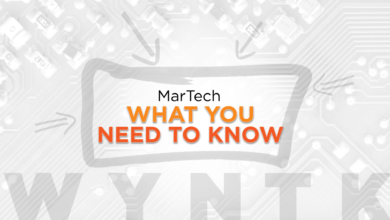The Rise of Chatbots in Marketing: How AI is Transforming Customer Engagement

Introduction
Chatbots have become a ubiquitous presence in the digital marketing landscape, revolutionizing the way businesses interact with their customers. Powered by artificial intelligence (AI), chatbots offer a personalized and efficient way to engage with users, providing instant responses to queries and delivering a seamless customer experience. In this blog, we will explore the rise of chatbots in marketing and how AI is transforming customer engagement.
The Evolution of Chatbots
Chatbots have come a long way since their inception, evolving from basic scripted bots to sophisticated AI-powered assistants capable of understanding natural language and context. With advancements in machine learning and natural language processing, chatbots can now engage in meaningful conversations, anticipate user needs, and provide personalized recommendations.
Types of Chatbots
There are two main types of chatbots: rule-based chatbots and AI-powered chatbots. Rule-based chatbots follow a predefined set of rules and can only respond to specific commands, while AI-powered chatbots leverage machine learning algorithms to understand and respond to natural language queries.
Benefits of Chatbots in Marketing
Chatbots offer several benefits for businesses looking to enhance their marketing efforts:
- 24/7 customer support
- Instant responses to queries
- Personalized recommendations
- Increased engagement and conversions
AI-Powered Chatbots in Action
AI-powered chatbots are transforming customer engagement across various industries, from e-commerce and banking to healthcare and travel. These intelligent assistants can handle a wide range of tasks, including answering FAQs, processing orders, scheduling appointments, and providing product recommendations.
Case Study: Retail Chatbot
Imagine you visit an online store and have a question about a product. Instead of waiting for customer support to respond, a chatbot pops up and provides you with instant assistance. The chatbot can answer your queries, suggest similar products, and even guide you through the checkout process, all in a conversational manner.
Challenges and Considerations
While chatbots offer numerous benefits, there are also challenges and considerations to keep in mind:
- Accuracy and reliability of responses
- Integration with existing systems
- Privacy and data security
- User experience and conversational design
Future Trends in Chatbot Marketing
As AI continues to advance, we can expect to see even more sophisticated chatbots in the future. Some emerging trends in chatbot marketing include:
- Voice-enabled chatbots
- Multi-channel integration
- Emotion recognition and sentiment analysis
- Personalization at scale
Conclusion
Chatbots have become an integral part of the marketing toolkit, offering businesses a cost-effective and efficient way to engage with customers. By leveraging AI technology, chatbots can provide personalized and timely responses, ultimately enhancing the overall customer experience.
FAQs
What is a chatbot?
A chatbot is a computer program that simulates human conversation through artificial intelligence. It can interact with users in a conversational manner, providing information, answering questions, and completing tasks.
How are chatbots used in marketing?
Chatbots are used in marketing to engage with customers, provide personalized recommendations, answer FAQs, process orders, and drive conversions. They can be deployed on websites, social media platforms, messaging apps, and more.
Are chatbots replacing human customer service agents?
While chatbots can handle routine inquiries and tasks, they are not intended to replace human customer service agents entirely. Instead, chatbots complement human agents by handling repetitive tasks and freeing up time for more complex interactions.




